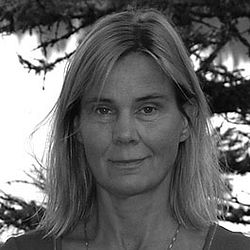Global trends – implications on the development and use of natural resources
Tid 8 Juni 2011 09:30 – 17:00
Plats KSLA, Drottninggatan 95 B, Stockholm
It is now widely recognized that the world is changing in fundamental ways and that the global regimes that govern natural resource ownership, production, finance and trade are in flux. There is rapidly growing global demand for natural resources, including land, minerals, agriculture, energy and water. This demand has put tremendous pressure on these, often increasingly scarce resources, many of which are located in forest areas of the developing world – well recognized to have high rates of poverty, social and political exclusion and often limited recognition of human and civil rights. These expanding markets are also providing new and perhaps unprecedented opportunities for increased local incomes and economic growth. At the same time there are major shifts in political power – both at the local and global levels – as democratization, transparence and accountability spreads, political power shifts towards the emerging economies including China, Brazil, India, Indonesia, and telecommunications technology facilitates greater connectivity across the world. Climate change is already having important effects on both natural systems, poverty, production possibilities and political systems. It is not clear if and how social movements, governments, and private sector actors will respond to these fundamental shifts and if new regimes can be put in place to better govern the world’s natural resources.
Some analysts focus on the negative trends and effects for humanity, e.g. the climate change scenarios, depletion of oil/biodiversity/water and other natural resources, increasing risk of fatal pandemics, etc. Other analysts are more optimistic, and draw attention to the positive trends and the opportunities created by expanding markets and progress and breakthroughs in science and technology. Some interpretations are based on sound science and observations, others are pure speculation, but, regardless of what, they are often misunderstood and/or grossly exaggerated in their perceived impacts by media and groups with vested interests. Some analysts have a long time perspective, others a short, leading to the risk of the trends being shown to be wrong, e.g. the predictions by the “Club of Rome” in the early 1980s that virtually all mineral and oil resources would be depleted before the year 2000, or turn out to be correct, e.g. the predictions 20 or so years ago that China and the “Pacific Rim” would take over the economic leadership in the world.
Whatever the case, we as scientists, politicians, business and community leaders must understand these global trends since they will affect our medium- and long-term activities and situations. The most important thing is to be well informed about such trends, how they may lead to risks and opportunities, and also be aware of what can and must be done to reduce risks for negative impacts and embrace opportunities for positive ones.
“Resources, rights, and development in a changing world” is the title of a Blue Skies meeting to be held at Chatham House in London on May 3-4 2011. This meeting is organized by the Rights and Resources Initiative (RRI) and participants are 20 specially invited leaders and thinkers from all over the world. They will discuss trends related to natural resources globally which are under stress from rising consumption and unsustainable production practices. The meeting will pay particular attention to the local and global political and trade issues that will affect the rights to and development of these resources and how local and global political regimes are likely to evolve over the next several decades.
In collaboration with RRI, The Royal Swedish Academy of Forestry and Agriculture’s (KSLA) Committee on International Forest Issues and the Secretariat for International Forest Issues will organise a one-day follow up seminar titled “Global trends – implications on the development and use of natural resources” at KSLA on June 8 2011. Sten Nilsson (fellow of KSLA) and Andy White (RRI) will begin the meeting by summarizing the outcomes of the London meeting. Invited guests from Africa, Asia and Latin America will comment on how the global trends are playing out in their regions and the implications for natural resources, local peoples’ rights and development. Representatives from Swedish organisations in the forest, natural resources, and development fields will provide comments on how they perceive how the trends will influence respective organisation’s work and priorities.
Welcome!
http://www.ksla.se/sv/retrieve_file.asp?n=2571&t=




